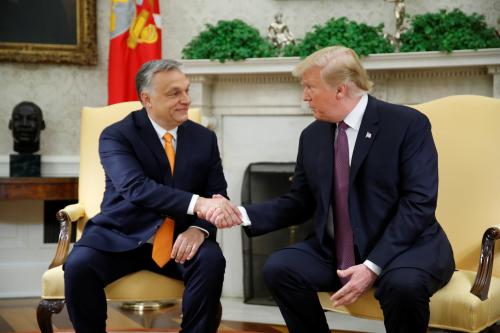Content from the Brookings Institution India Center is now archived. After seven years of an impactful partnership, as of September 11, 2020, Brookings India is now the Centre for Social and Economic Progress, an independent public policy institution based in India.
Since its independence from Britain in 1947, India has evolved into a strong electoral democracy—the largest in the world—and one that has proven resilient in the face of the populist tide pressuring many western democracies. India has also emerged as a powerful nation in the Indo-Pacific region, contributing to global democratic institutions and norms in ways not always noticed in the West. In this fourth and final episode of the Democracy and Disorder Project podcast series, host Torrey Taussig talks with Dhruva Jaishankar, a fellow in Foreign Policy at Brookings India in New Delhi, about India’s evolving role in the liberal international order.
Taussig is a nonresident fellow with the Center on the United States and Europe at Brookings and a Robert Bosch Foundation Fellow based in Berlin.
Related Content:
Deepening democracy through diversity: Improving cooperation with India and non-Western democracies
Subscribe to Brookings podcasts here or on iTunes, send feedback email to [email protected], and follow us and tweet us at @policypodcasts on Twitter.
The Brookings Cafeteria is part of the Brookings Podcast Network.




Commentary
PodcastIndia’s role as a democracy in the liberal international order
March 19, 2019